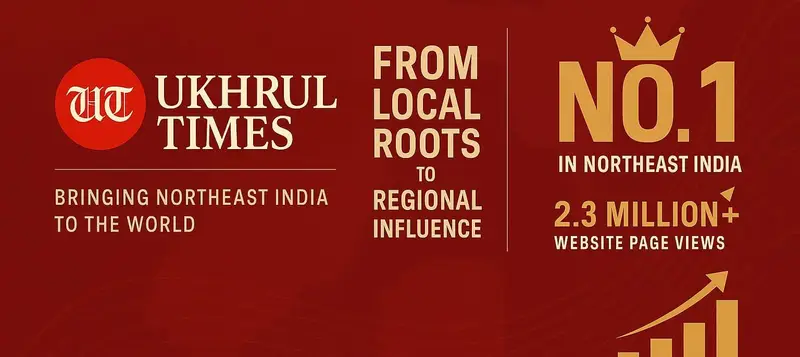Now Reading: New Education Policy 2020 commendable and praiseworthy: Governor of Manipur
-
01
New Education Policy 2020 commendable and praiseworthy: Governor of Manipur
New Education Policy 2020 commendable and praiseworthy: Governor of Manipur

Najma Heptulla: During the last few days, several eminent personalities in the field of education and media of the country discussed the merits and demerits of the new National Education Policy (NEP), 2020. This Policy was passed after more than three decades – first one was framed in 1986 and modified in 1992. During this period of more than three decades, significant changes were noticed in our country pertaining to socio- economy and the globe at large. Therefore, it appears quite legitimate that the education sector also needs to strengthen itself towards the demands of the 21st Century and the needs of the people and the country. Quality education as well as innovation and research will be the pillars on which India will become a knowledge super power. It is, in this context, a New Education Policy is needed at this juncture. The Government of India, accordingly, mooted the process of formulating a New Education Policy, to begin with, through the consultation process in which expert opinions, field experiences, stakeholder feedback as well as lessons learned from best practices were taken into consideration.
The New Education Policy 2020, that will certainly be a landmark in the history of education in India, for, the policy is comprehensive, holistic, far sighted and will certainly play a pivotal role in the Nation’s future growth. I must commend the Government of India under the dynamic leadership of Shri Narendra Modi ji, Hon’ble Prime Minister of India for having taken an excellent step in the field of education. The policy is welcomed by one and all of our Nation which seeks to transform India into a vibrant knowledge society. It is a pride in India as well as acceptance of the best ideas and practices in the world of learning from across the globe.
It is a matter of great satisfaction to note that one of its loftier goals is to bring crore of out of school children into the school system and reduce innumerable dropouts. More importantly, to reduce the burdensome syllabus, focus on vocational education and environmental education are crucial aspects well covered by NEP. Students will be much more empowered and have the opportunity to choose the subjects they wish to study.
I am quite impressed to know that barring Medical and Law Colleges, the NEP also makes an attempt to improve governance by bringing in a single regulator to look after all educational institutions. This is a significant step. In addition, the NEP also aims at a holistic education by envisioning the convergence of science and arts streams. The focus on ethics and human and Constitutional values will go a long way in the creation of an enlightened citizenship essential for deepening our democratic roots.
The policy also expands the scope of foundational education, increasing the school going years from 3 to 18 instead of the prevalent 6 to 14. This will enable a more holistic development of children in the formative age group of 3 6 years. Setting up a National Mission on Foundational Literacy and Numeracy is a much needed, timely step to improve the quality of education at the primary education level. NEP recognises the importance of nutrition to the all round development of children and has therefore included a provision for an energy filled breakfast, in addition to the nutritious mid day meal, to help children achieve better learning outcomes.
A much discussed stipulation in the NEP stresses that the medium of instruction until at least fifth grade (preferably eight grade) will be in a regional language that is recognised as being native to India. This is a welcome step, as mother tongue plays a highly critical role in the overall development of the child. Mother tongue, which a child hears right from the moment he or she is born, provides personal identity, connects with culture and is crucial for cognitive development. As far as my personal view is concerned, it is quite fascinating and unprecedented development in the newly framed NEP is education in mother tongues which will, indeed, help children develop an interest in regional literature and culture and help them understand better the customs and traditions that are indigenous to a particular region. I am glad that the policy places great emphasis on classical languages of the country.
India is a large and diverse Nation having different languages, dialects and mother tongues. We have now seen that number of developed countries in the globe educate their children in mother tongues. When there is a world congregation/meeting, leaders of different countries prefer to speak in their mother tongues even though they are quite conversant/proficient in English which is lingua franca of the world. Glaring example is that great scholars of the world prefer to write and speak in their own mother tongues. There is a certain pride associated with speaking one’s mother tongue and we must inculcate this sense of pride in our children also. However, most fascinatingly, despite the importance given on regional/mother tongues, NEP categorically/distinctly highlights that there would be no imposition of any language and no opposition to any language. This is, indeed, a welcome step of this Policy.
Although this Policy was long overdue, now it is upto the Implementing Agency whether this could be efficiently and effectively implemented. Therefore, at this critical juncture, in order to implement this Policy successfully, the Union and State Governments as well as Union Territories have to work collectively to make the change happen in the classrooms. I am also fully confident that if this Policy is implemented well, this is the only way forward to make our country a leading knowledge hub. I strongly believe that all the States /Union Territories will lend their whole hearted support in the effective implementation of this policy.
The National Education Policy 2020 intends to completely deter the students from private tuitions and coaching classes. The NEP further highlights the Government’s desires to make CBSE Board exams easier, more flexible that will test a child’s capacities/competencies. As per the new NEP 2020, the extant 10+2 system will be replaced by a 5+3+3+4 system. Therefore, the extant 10+2 structure is going to be abolished and 5+3+3+4 structure will be introduced in School Education. The policy aims at transforming circular and pedagogical structure from the existing 10 years + 2 years to a more inclusive foundational to secondary stage transition.
In this modern society, today, for example, a student, particularly in urban cities, starts formal education at the age of 3 by sending them to Kid’s Centres/Schools by means of play schools. Thereafter, the child moves to a K.G. School – Kindergarten 1 and 2 and 12 years of Secondary then Higher Secondary education. Nevertheless, in the new NEP, the structure proposes – firstly developmental stages of the child – secondly, early childhood, school years, and thirdly, Secondary stage. My late grand uncle Maulana Abul Kalam Azad ji, one of the greatest leaders of our Freedom Movement and the first Minister for Education of Independent India had the vision and foresight to recognise the need of quality and secular education for a new born democracy like India. Therefore his first focus was on building a strong institutional edifice for a modern educational system for the country. Its result, we have seen today in the form of the University Grants Commission, the Indian Institutes of Technology (IITs) and several other bodies which he founded to promote higher education in the country. In recognition of his farsighted and invaluable contributions in the field of education, 11th November, his Birth Day is celebrated in our country as “National Education Day”.
In our country, over the decades, we have witnessed many pioneers who have fought for the cause of education against all odds. My grand uncle, one of our greatest nationalist leaders and a passionate educationist, while addressing a conference in 1948, emphasized: “We must not for a moment forget, it is a birth right of every individual to receive at least the basic education without which he / she cannot fully discharge his/her duties as a citizen.”. As the first Minister for education of independent India, he considered basic education to be of prime importance for the future welfare of the people. He also emphasized on the speedy progress of education of women and adult education. As early as in 1948, he had championed universal Education as a national priority. •To quote again ‘One of the main causes of international tension and misunderstanding is ignorance and prejudice’. The fact that conflicts today mostly emanate out of regions deprived of quality education is itself evidence of the power of education.
We, as a nation, can pay true tribute to the memory of Gandhiji, Maulana Azad and other eminent leaders only if we recognise the importance of education in nation building and evolve policies and programmes to achieve that objective. Only through quality education, we can produce committed, responsible, disciplined, well integrated and socially sensitive citizens who will be the greatest assets of our country.
Once my grand uncle said, “I don’t mind if young minds of our country going abroad for higher education but I want that Educational institutions of our country should be of that standard so that foreign students should also get education here as was the case during the time of Takshila and Nalanda.
During one of his speeches he said that “ Education (in terms of budget) should be at par with defense”. This is absolutely true. A new National Education Policy (NEP), generally comes along every few decades. India has had three NEPs till date. The first was in 1968 and the second in 1986, during Congress regime and the third one cleared under the dynamic leadership of Shri Narendra Modi ji, Hon’ble Prime Minister as NEP of 2020. The relentless efforts made by Shri Ramesh Pokhriyal Nishank, Hon’ble Education Minister for a New Education Policy is indeed commendable and praiseworthy. This Policy is widely welcomed by one and all the people of the country. We hope this Policy will certainly be able to bring a brilliant change in the field of education in the coming generations. Dr.















